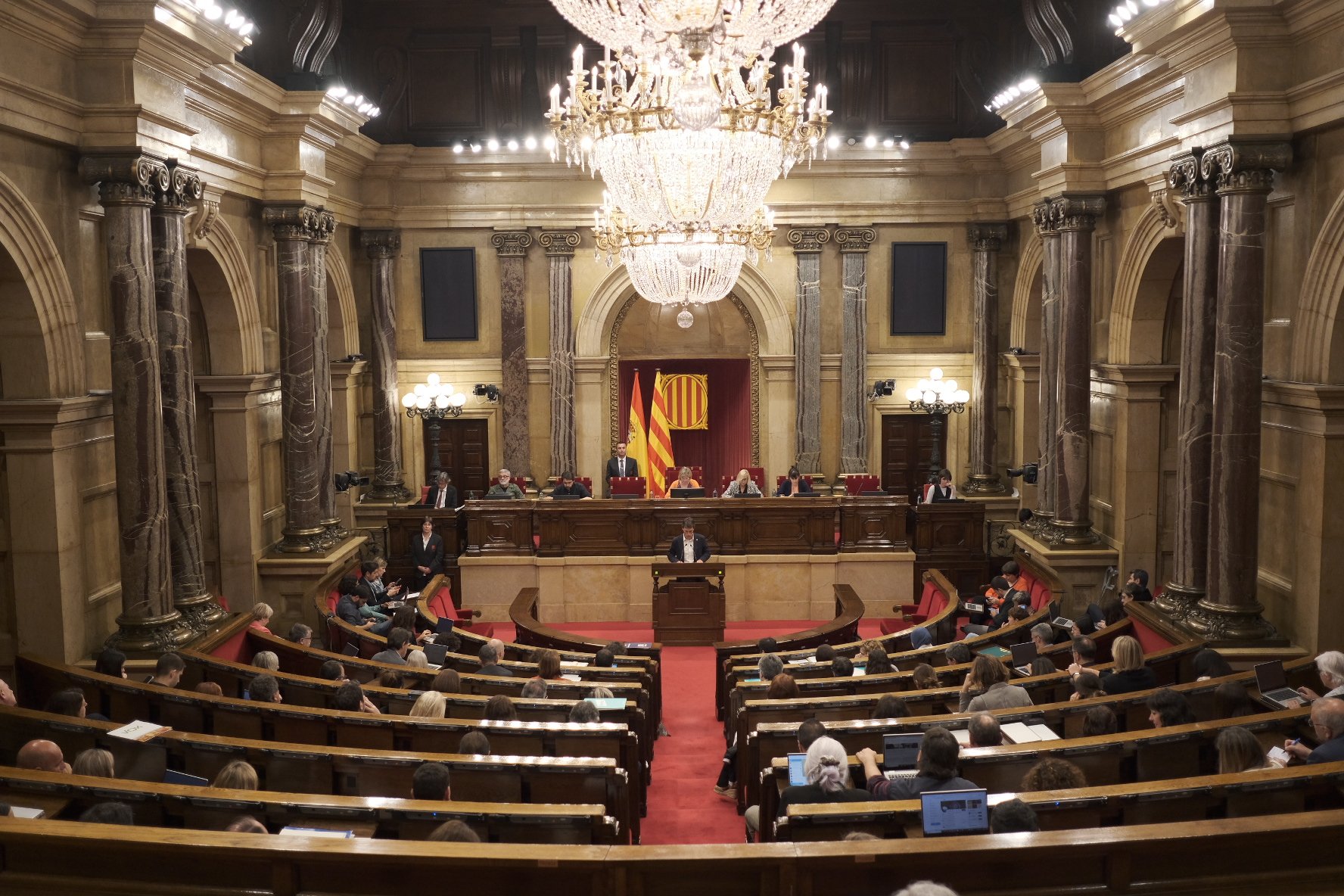Spain's Constitutional Court has overturned decisions made by the Catalan Parliament's Bureau on proposed motions on the right to self-determination and the Spanish monarchy, after considering an appeal presented by 32 Catalan MPs representing the Ciudadanos (Cs) party. Specifically, the court annulled the decision by the Bureau, which is the procedural body deciding the parliamentary agenda, to allow the chamber to consider several resolutions in favour of self-determination and against the monarchy in July 2019. The ruling says that the rights of the Cs representatives were violated because there was already jurisprudence to the contrary which the Bureau should have considered.
This is not the first time that the Constitutional Court has made a ruling of this nature: for example, at the beginning of 2022, the court annulled two accords by the Bureau on self-determination - made in September 2019. But on this occasion, the deputies of Ciudadanos, main opposition party in the Catalan Parliament at the time, contested the admission for a hearing agreed by the Bureau on July 24th, 2019 of several proposed resolutions formulated by Together for Catalonia (Junts) and the Popular Unity (CUP) to be debated in a plenary session called for the following day (July 25th) to deal with "proposals for the real Catalonia". It is for these types of proposals that the then-speaker of Parliament, Roger Torrent, and other members of the Bureau were tried. In fact, they were acquitted last November, but in March this year, prosecutors submitted an application for a retrial.
The Constitutional Court's doctrine
The Ciudadanos deputies alleged that the admission to parliamentary consideration of these proposals was a violation of their fundamental right to exercise a representative office under equality of conditions, in relation to the right of citizens to take part in public affairs through their representatives. Thus, they argued that they were placed in the situation of either not taking part in the debate on these proposals - on Catalan self-determination and the Spanish monarchy - thereby giving up the functions for which they had been elected; or taking part in the session knowing of its illegality. This last point relates to the fact that the text of the proposals contradicted what had been decided by the Constitutional Court as acceptable for resolutions in the Catalan Parliament prior to that date.
Thus, the court decided the appeal by invoking its previous doctrine on the matter - with respect to the constitutional control of decisions adopted by Spanish legislative bodies over their functions of classification and admission to procedure of parliamentary initiatives. Specifically, when these constitute a clear breach of what the Constitutional Court had previously decided: firstly, on self-determination, the July 2019 decisions of the Bureau, on a resolution which urged Parliament to defend the right to self-determination of Catalonia "as an instrument of "access to the sovereignty of the people of Catalonia as a whole", "with or without the agreement of the Spanish state", were in "frontal contradiction" to a ruling sentence of the Constitutional Court in December 2015; in which, "as a result of the electoral results of September 27th, 2015, the beginning of the process of creating an independent Catalan state was declared and its disconnection from the Spanish State, without subjecting itself, among others, to the decisions of the Spanish State, in particular the Constitutional Court". As for the resolution which proposed to reprimand Spanish king Felipe VI for his "position and intervention in the Catalan conflict" and also "made a commitment to the abolition" of the monarchy, the Constitutional Court had already, in July 2019, declared unconstitutional some sections of an almost-identical Catalan Parliamentary resolution from October 11th, 2018.
Dissenting opinion
In short, the ruling concluded that the Bureau of the Parliament of Catalonia should have prevented those initiatives, and by not doing so it injured the core of the representative function of Citizens' deputies, thus violating their fundamental rights. However, one member of the Constitutional Court, judge Ramón Sáez Valcárcel announced the formulation of a dissenting opinion. He does not share the doctrine applied by his colleagues, because it expands the fundamental rights of the representative function of the plaintiff deputies (those of Ciudadanos), who are, says Sáez Valcárcel, only obliged to take part in the debate after a matter has been sent to Parliament. On the other hand, the court's majority opinion sacrifices the fundamental right of the deputies who proposed the motions, who are prevented from submitting their initiatives to deliberation and defending them. In addition, he argues, the majority view represents an unacceptable restriction of parliamentary functions, by expelling from the political debate relevant issues such as the form of the state, criticism of the actions of the head of state and the subject of sovereignty, and it substantially affects the democratic principle .

